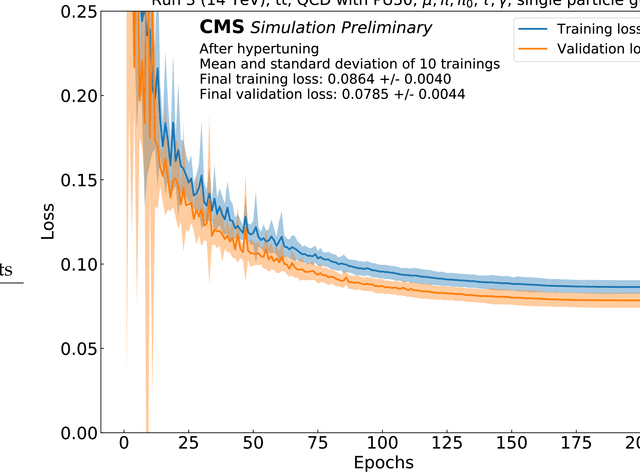Machine Learning for Particle Flow Reconstruction at CMS
Paper and Code
Mar 01, 2022
We provide details on the implementation of a machine-learning based particle flow algorithm for CMS. The standard particle flow algorithm reconstructs stable particles based on calorimeter clusters and tracks to provide a global event reconstruction that exploits the combined information of multiple detector subsystems, leading to strong improvements for quantities such as jets and missing transverse energy. We have studied a possible evolution of particle flow towards heterogeneous computing platforms such as GPUs using a graph neural network. The machine-learned PF model reconstructs particle candidates based on the full list of tracks and calorimeter clusters in the event. For validation, we determine the physics performance directly in the CMS software framework when the proposed algorithm is interfaced with the offline reconstruction of jets and missing transverse energy. We also report the computational performance of the algorithm, which scales approximately linearly in runtime and memory usage with the input size.
 Add to Chrome
Add to Chrome Add to Firefox
Add to Firefox Add to Edge
Add to Edge